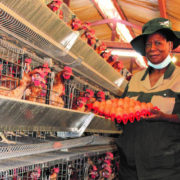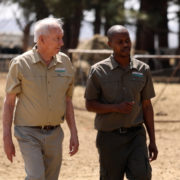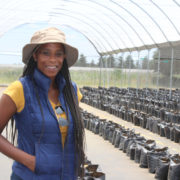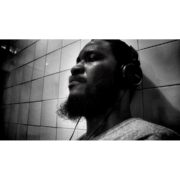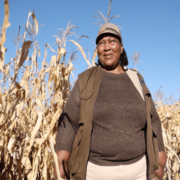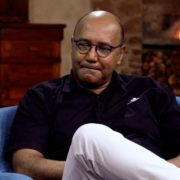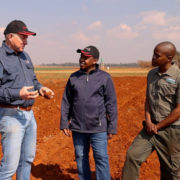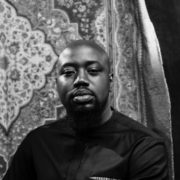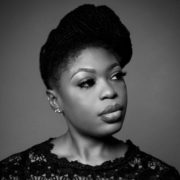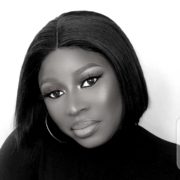PEARL OSIBU THE MASTER SCREENWRITER

Do you have a consistent way of working when you start a screenplay or teleplay? Do
you write a treatment or outline, do character bios before you write, or is it a more
freeform process?
With a spec script, sure, that would be the process: a synopsis where the core idea is laid out which captures the premise, the protagonist/main characters, and the conflict. This is followed by extended treatment, especially if this needs to be submitted to a prospective partner, funder, producer or studio exec. Another time this would be necessary is if it’s a high concept idea, and/or a unique world where the texture and rules are different, as against a contemporary story where almost everything can be assumed.
Otherwise (that is if the project does not fit with the conditions above), I simply let the idea marinate in my mind, and then go from synopsis right on to the next step which is the step outline. This is where all the checks and balances are done; all plot holes are found and fixed, all areas where the story lags or events spiral, where relationships between core characters are established, the sequence of events are laid out for best effect and most importantly, the story is seen clearly and in a brutally honest light from start to finish. If the story doesn’t work in step outline, it doesn’t work on screen. It’s that simple. There is no place to hide. This is, after all, the blueprint for the script.
And then on to the script – easy-peasy.
The rules/methods are however slightly different from an idea you’ve been contracted to develop, or as in this case, an adaptation. The template has already been handed to you. Your job at this point is to make decisions about plot points and plot structure; what storylines would translate well on screen? Which ideas can be shot in a visual medium within the constraints of translation, technology and budget? Which characters are interesting enough to follow? How do we sequence the events? Are we going to tell the story linearly or…? And finally and most importantly, how do we elevate the original idea, so that audiences who have experienced a previous version would still be having a unique experience with this retelling. Decisions, decisions. So while the job of creating a story may have been lifted off you, the new challenge is to condense and create a whole new and equally – if not more exciting – experience for the audience, both old and new.
You’ve had an amazing career so far; How did the relationship with the showrunner [Arese] develop, and what was the creative process like for you?
I was in another story conference – when I received a phone call from Arese. She introduced herself, told me about her book (I found out later that two people had sent me pirated/illegal e-copies of the book and I’d declined). She gave me a brief idea of what was intended and wanted to know my availability. I wanted to hear about the project in order to know whether I was interested. So she pitched the idea…and let’s just say I was intrigued enough to ask her to go ahead and mail me a copy of TSMW book.
So while the job of creating a story may have been lifted off you, the new challenge is to condense and create a whole new and equally – if not more exciting – experience for the audience
I received it the very next day – and yes, that told me quite a bit already about how she works and how passionate she was about the project.
I read the book; I’ll summarize my impression by simply saying that I wish I’d read it before. Then we set up a meeting. Arese was warm and open and vulnerable. You see that vulnerability, it made me feel immediately that I would slay dragons to make this happen. It’s a skill she has. She’d scam you, you’d know she’s scamming you, she’d know that you know she’s scamming you, you’d know that she knows that you know she’s scamming you…and so on, and guess what; you wouldn’t mind.
I was determined not to let her down, and I hope I never did. Anyway, after that, we set timelines and then went on to work in consonance to make sure this got done and on time. Of course, we hit a few snags, missed some deadlines, but we pressed on, and now we’re here.
Do you think TSMW will be an important show for Nigerian women?
I believe so. I hope so. Because, how could it not be? It makes its points, passes its message, all subtly wrapped in the snug blanket of great and interesting storylines that ease the rigour of absorbing these lessons so that in the end, you’ve had a pretty good ride, learned many lessons along the way, forged a new determination or reminder to do better with your finances, and all without feeling preached at or dictated to.
What were the biggest challenges in adapting the source material from the book to a script, good and bad?
Can I be honest? Thank you. There was not enough source material for the number of episodes we wanted to film and the time assigned for each episode. A lot of creation of subplots and storylines had to be done. Also, for a project such as this that is, at its core, the education genre, you have to be careful not to get too carried away with teaching that you forget to entertain.
And best of all, all are transported by far more accessible vehicle, a visual medium. Because hey, it is easier to watch than to read– facts! If the show is as successful as the sourcebook has been, I think we’ll all be very gratified.
What’s your secret weapon when you’re on a new project?
Ownership/buy-in of the project. Once I’ve decided that I’m intrigued and interested in a project, it becomes mine and I want almost as desperately as the owner to see it through.
There’s no gainsaying the fact that many times, this quality of mine can and has been abused, but I don’t intend to change.
If you cannot become vested in a project you’re on, there’s no point doing it, and the moment the situation becomes so fraught that you’re no longer interested in the best interest of the project for reasons other than the work itself, that might be a good time to step aside, rather than give it less than your best. This is a value I try to live and work by. Every other thing – hard work, excellent quality etc are secondary to owning the project and treating it as your own
Favourite memory of writing/re-writing this script?
Arese and her drama! Arese can be dramatic. Deep in rewriting – around the third draft – we took our story conference to a serene resort far, far away.
One day, we got stuck at episode nine, and after a long and gruelling day and making no headway, Arese suddenly and very dramatically threw her hands up and said ‘Oh my God, we don’t have an episode nine!’ and from the way she said it, all was irretrievably lost. My colleague and I promptly threw her out because that was just bad energy and she was going to transfer it.
When she returned a few hours later, we read the episode to her, and I daresay it is all of our favourite episodes of the season. I still roll my eyes and convulse in equal measure at this memory. And then all those 2 am phone calls. Arese does not stop working, and time truly became a human construct during the period we were working on this script. When you work with someone who works so hard, you have to match their energy
What’s the writer’s room like for a character-driven show like TSMW?
Strong opinions. Let me say this categorically; it was hard, it was intense, and yet it was exciting. We argued, and agreed, fought and made up. We listened to each other, and then we’d close off and get stuck on an idea. I am forever glad for this experience and wouldn’t have traded or ‘short-cut’ any of it…
What’s the most thrilling part for you — writing, filming, or watching?
You missed a step; conception. Conceiving a really good idea is incredibly wild. But after
that, writing and filming are just down to grit, interspersed with moments of euphoria when things go right. So it will be watching, for me Watching, is the culmination – seeing months, and in some cases, years of work finally come together. It’s a miracle and I cry often the first time a project I’m involved in is screened to an audience outside of the people involved in its
production.
What’s your secret weapon. When you’re on a new project?
My secret weapon is my sense of humour. Writing is not sexy at all. It’s long and arduous and very often your ideas get ripped apart and dressed down, so you have to learn not to take any of these things too personally. Also, I’m biased, so very rarely do people care about the writers as they do the stars or directors. It can be quite thankless. So I always find the upside when I’ve just finished crying over feedback or been given some harsh critiques.
What’s the most thrilling part for you — writing, filming, or watching?
Writing by far. I love it very, very much.
What were the biggest challenges in adapting the source material from the book to a script — good and bad.
When you’re trying to stay true to the source material, it can sometimes feel limiting. You don’t want to stray too far out of what people know of a character that feels familiar to them. However, It’s also very helpful. A lot of backstory work is done for you, so you are building on something that exists, which can be wonderful.

